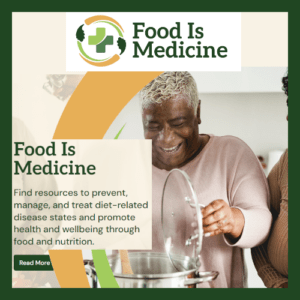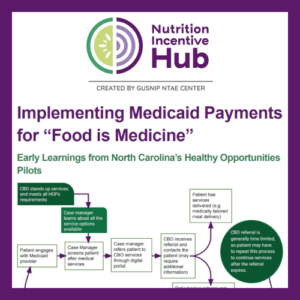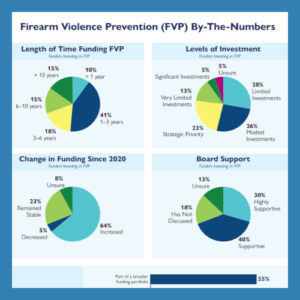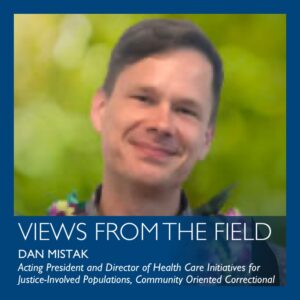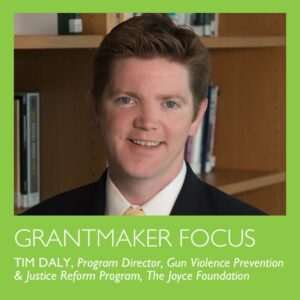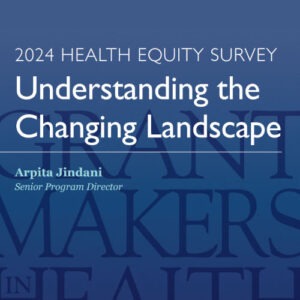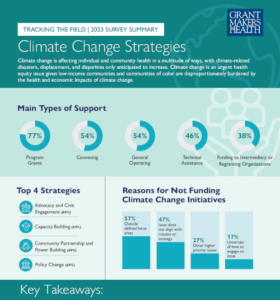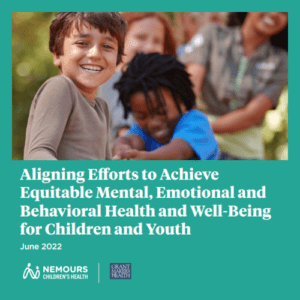Upcoming Events
Past Events
Featured Resources
New America Report Examines Subminimum Wage for Disabled Workers
Under the Fair Labor Standards Act, employers are allowed to pay disabled workers less than the federal minimum wage, which has significant impacts on these workers’ health and well-being. A report from New America examines, state by state, the policies that drive the use or elimination of the subminimum wage, as well as the programs each state provides to more comprehensively support individuals with disabilities as they seek meaningful employment and fair wages.
HHS Launches New Food is Medicine Virtual Toolkit
The Toolkit was developed in response to the National Strategy on Hunger, Nutrition, and Health and to support communities design and implement effective Food is Medicine interventions.
Case Study Examines Early Learnings in Using Medicaid Payments for Food is Medicine
A new resource commissioned by the Fair Food Network examines the early learnings from the Healthy Opportunities Pilots effort in North Carolina to use federal 1115 Medicaid Demonstration Waiver funding to scale and sustain community-based implementation of a combination of produce prescription programs, medically tailored meal programs, and nutrition education.
Explore Health Equity and Social Justice Topics
Recent Items - Climate and Environmental Health
The Health Sector is a Critical Voice in Climate Advocacy
Recent Items - Health Equity
Let’s Take Courageous Steps Together in 2025
Recent Items - Healthy Eating/Active Living
The National Peanut Board: April 2025
Recent Items - Housing
Marin Community Foundation: October 2024
Horizon Foundation: September 2024
Recent Items - Justice Reform
Recent Items - Social Determinants of Health
Marin Community Foundation: October 2024
Recent Items - Violence Prevention
The Joyce Foundation
Latest Resources
The Health Sector is a Critical Voice in Climate Advocacy
Founded 120 years ago, the American Lung Association is the leading organization working to save lives by improving lung health and preventing lung disease through research, education, and advocacy. Central to our work is a mission imperative to champion clean air for all. We work tirelessly to protect public health from air pollution to ensure that all people have air that is safe and healthy to breathe, including through advocacy to address climate change and advance clean air policy at every level of government.
Let’s Take Courageous Steps Together in 2025
At the Kate B. Reynolds Charitable Trust, this has been a challenging year for North Carolina, where we live and work. Hurricane Helene devastated the western part of NC and the surrounding region, and we endured an election that divided our state and nation.
We also know that we are not alone facing the challenges of 2024 and those we will take on in 2025. Many of us in the Grantmakers In Health (GIH) community are wondering how to persevere through these uncertain times. At the Trust, we acknowledge the heaviness of the moment—because we anticipate policy changes that will negatively impact people who are already being left behind.
Postpartum Care Systems: Strategically Collaborating to Advance and Align Solutions Across Sectors
As state policymakers began extending continuous eligibility for postpartum Medicaid coverage from the 60 days following birth to the 12 months following birth in 2022, a small workgroup of
funders connected to explore what philanthropy’s role could be in strengthening maternal health outcomes
and how we might support effective implementation of the extension
Q&A: How the Chicago South Side Birth Center is Championing a Better Approach to Maternal Health
Grantmakers In Health (GIH) recently spoke with Jeanine Valrie Logan, Founder + Lead Steward of the Chicago South Side Birth Center, and Shruti Jayaraman, Chief Investments Officer of Chicago Beyond, to learn how the Chicago South Side Birth Center and Chicago Beyond are working together to improve maternal health outcomes for mothers in one of Chicago’s most underserved communities. This interview has been edited for style and clarity.
Investing in Inclusion: How Health Philanthropy Can Prioritize the Needs and Perspectives of Individuals with Disabilities
One in five children in the United States has a special health care need requiring more than routine health services, and one in four adults report having a disability. As 70 million adults and 14.5 million children in the United States have a disability, the population impacted by issues in the aging out process and in the health care system more broadly is far from insignificant. Despite these numbers, disability-related grants represent just 2 percent of total philanthropic giving and are primarily directed towards services and supports that seek to fix or cure disabilities and perpetuate the ableist assumption that people with disabilities are unable to make decisions about their own care.
Merck Foundation: December 2024
Merck Foundation has launched a new initiative – the Collaborative for Equity in Cardiac Care to advance equitable access to high-quality, culturally responsive cardiac care for people living with heart conditions in underserved United States communities. The foundation is committing $17 million over five years to support the development and implementation of innovative, comprehensive programs for cardiac health care across the country as well as promote cross-sectoral collaborations to address barriers to care associated with social drivers of health.
Reports and Publications
2024 Health Equity Survey: Understanding the Changing Landscape
In 2024, Grantmakers In Health (GIH) surveyed its Funding Partners to understand how their health equity work has evolved. The survey consisted of 40 questions including demographic information, program focus areas, partner engagement, organizational strategy, priority population, successes, and challenges. This report summarizes findings from the Health Equity Survey titled, “Understanding the Changing Landscape.”
2023 Survey Summary: Climate Change Strategies
This infographic summarizes the responses to a Grantmakers In Health funder survey, conducted in May and June 2023, on how philanthropy is addressing climate change, and the barriers and opportunities that exist to support climate-related efforts.
Aligning Efforts to Achieve Equitable Mental, Emotional, and Behavioral Health and Well-Being for Children and Youth
This report issues a call to action for philanthropic organizations and public-sector partners that are ready to move forward in improving mental, emotional, and behavioral health. It describes existing philanthropic and federal initiatives and offers a potential portfolio of aligned strategies for private- and public-sector partners to consider.
Strengthen your knowledge, skills, and capacity.
GIH focuses our programming around five areas that are critical to achieving better health for all.
We invite you to explore the resources available on our focus areas pages, browse content in more specific issue areas, and to connect with GIH staff to discuss how we can partner and support your work.


